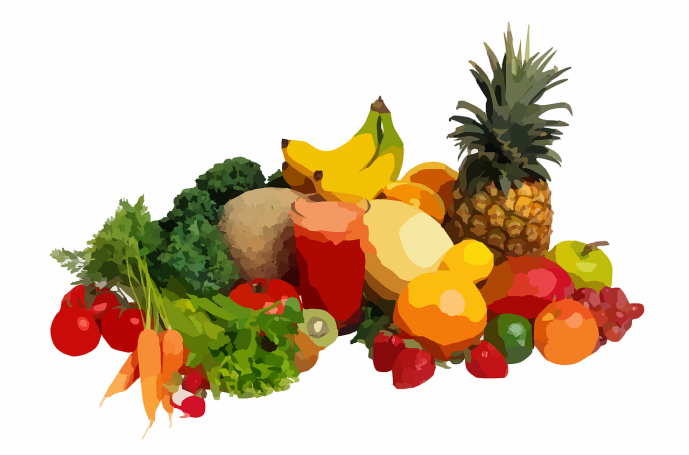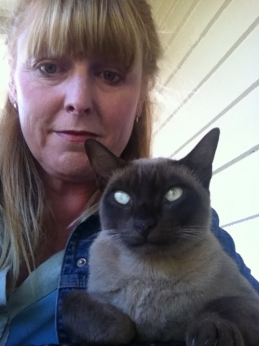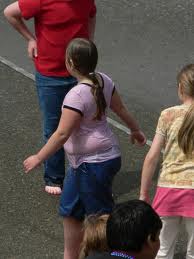Environmental and food safety organisations internationally are celebrating the global phase out of the DDT-like organochlorine pesticide, endosulfan. New Zealand NGOs, Soil & Health Association, Pesticide Action Network – Aotearoa New Zealand, and Safe Food Campaign along with the Green Party had for many years called for the banning of endosulfan, and a reassessment by the Environmental Risk Management Authority (ERMA) in 2008 finished the legal use of endosulfan in New Zealand two years ago.
“New Zealand anti-pesticide campaigner Dr Meriel Watts’ part in the international action that has had endosulfan added to the Stockholm Convention’s list of banned substances, deserves recognition,” said Soil & Health – Organic NZ spokesperson Steffan Browning.
“Dr Watts has put significant work in nationally and internationally to reduce exposure of humanity and the environment to these unnecessary pesticides, and will have improved the lives of very many people in the process.”
“Pesticide use in New Zealand continues unabated however, and for every neurotoxic, carcinogenic, and endocrine disrupting pesticide like endosulfan that is banned, New Zealand regulatory authorities such as ERMA, New Zealand Food Safety Authority, Food Standards Australia New Zealand, Regional and District Councils, with the support of the Ministers of Health, Food Safety, Environment, Conservation and Agriculture, continue to allow other new and old pesticides to soak our lands, waterways and food stuffs.”
“It took decades of advocacy, and threats to New Zealand export access, to have endosulfan removed from use, but resistance by commercial and regulatory agencies, with theoretical economic imperatives leading over precaution and safety warnings, will have damaged the lives of many. The same culture persists.”
“Where is Aotearoa New Zealand’s pesticide reduction policy? Where is Government support, for the NGO’s and advocates for a greener, safer environment and food chain? This year, Prime Minister John Key’s ‘Tourism Of New Zealand’ dropped its 100% Pure New Zealand strap-line, this needs to be revisited. Continual pesticide reduction should be part of a nuclear free, GE free, clean green 100% Pure Aotearoa New Zealand vision.”
Soil & Health – Organic NZ continues to advocate for a radical reduction in pesticide use in a clean green 100% Pure Aotearoa New Zealand in an Organic 2020.
KILLER PESTICIDE ENDOSULFAN TO BE PHASED OUT GLOBALLY
GENEVA: The nations of the world, gathered in Geneva this week, agreed to add endosulfan, an antiquated persistent insecticide, to the Stockholm Convention’s list of banned substances. Environmental health and justice organizations from around the world who have been working towards a ban welcomed the decision.
The use of endosulfan has severely impacted the people of Kerala, India, where its use on cashew plantations has left thousands suffering from birth defects, mental retardation, and cancer. “This is the moment we have been dreaming of,” says Jayan Chelaton from Thanal, a public interest research group based in Kerala. “The tears of the mothers of the endosulfan victims cannot be remedied, but it will be a relief to them that there will not be any more people exposed to this toxic insecticide. It is a good feeling for them. We are happy to note that this is also victory for poor farmers, as this proves people united from all over the world can get what they demand.”
Because of its persistence, bioaccumulation, and mobility, endosulfan, like DDT, travels on wind and ocean currents. It has travelled as far as the Arctic where it has contaminated the environment and the traditional foods of the people there. “We are pleased with the decision of the global community today to phase out this dangerous chemical that has contaminated our traditional foods in the Arctic. Our people are some of the most contaminated on the planet.” said Vi Waghiyi, a Yupik woman from St. Lawrence Island (Alaska) and the Environmental Health and Justice Program Director with Alaska Community Action on Toxics. “But until all manufacturing and uses of endosulfan are eliminated, this pesticide will continue to harm our peoples, so we urge all countries to rapidly implement safer alternatives and eliminate their last few uses of endosulfan.”
For most uses the ban will take effect in a year, but use on a short list of crop-pest combinations will be phased out over a six-year period. “With a plethora of alternatives already available, we’d have preferred to see no exemptions included in the decision. But we were successful in restricting exemptions to specific combinations of crops and pests. This means that during the phase-out it can only be used in very specific situations,” said Karl Tupper, a staff scientist from Pesticide Action Network North America who attended the deliberations.
Endosulfan, a DDT-era pesticide, is one of the most toxic pesticides still in use today. Each year, it took the lives of dozens of African cotton farmers until recently being banned by most countries on the continent. Hundreds of farmers in the developing world still use it to commit suicide each year.
“The health of Indigenous Peoples around the world, including our Yaqui communities in Mexico, are directly and adversely impacted when these kinds of toxic chemicals are applied, usually without their knowledge or informed consent. This phase out is an important step forward for Indigenous Peoples adversely affected both at the source of application and in the Arctic where these toxics ultimately end up,” said Andrea Carmen, Executive Director of International Indian Treaty Council and coordinator of the Indigenous Peoples Global Caucus at the meeting.
According to Javier Souza, Coordinator of Pesticide Action Network Latin America, “This phase out of endosulfan provides an excellent opportunity for countries to implement non-chemical alternatives to pesticides and to strengthen and expand agroecological practices. National phase out efforts should be open to the participation of experts from academia, farmer organizations, and environmental groups with experience.”
Momentum for a global ban has been building for many years. “Endosulfan was first proposed for addition in the Convention in 2007. At that time about 50 countries had already banned it; today, more than 80 countries have banned it or announced phase-outs. NGOs have worked very hard to make this happen,” says Meriel Watts, senior science advisor, from Pesticide Action Network Asia and the Pacific. “But today’s decision is really a tribute to all those farmers, communities, and activists across the planet who have suffered from endosulfan and fought for this day. It is especially a tribute to the thousands in the state of Kerala, India, whose health has suffered so terribly from endosulfan, to the inspirational leadership of Kerala Chief Minister VS Achuthanandan, and to the many other people there who have all fought for their rights and for a global ban on endosulfan.”
“We are delighted with this decision as it means agricultural workers, Indigenous Peoples and communities across the globe will finally be protected from this poisonous pollutant,” says Dr Mariann Lloyd-Smith, CoChair of IPEN – International POP (Persistent Organic Phosphates) Elimination Network. “The UN’s own scientific body had clearly shown that endosulfan is a POP, despite the recent vocal claims by some. Endosulfan contaminates the Arctic food chain and Antarctic krill, poisons our farmers, and pollutes our breastmilk. It was clearly time for endosulfan to go and it now joins the same fate as old POP pesticides like dieldrin and heptachlor, banned once and for all. It is essential that all POP should be eliminated and this global ban will provide the much needed legal protection.”
Available for Interviews:
· Karl Tupper, Pesticide Action Network North America, karl@panna.org, +1 415-981-1771 (USA)
· Dr. Mariann Lloyd-Smith, International POPS Elimination Network, biomap@oztoxics.org; +61 41-362-1557 (Australia)
· Dr. Meriel Watts, Pesticide Action Network North America Asia and the Pacific, merielwatts@xtra.co.nz; +64 21-1807830. (New Zealand)
· Vi Waghiyi, Alaska Community Action on Toxics, vi@akaction.net, +1 907-222-7714 (USA)
· Jayakumar Chelaton, Thanal, jayakumar.c@gmail.com
· Andrea Carmen, International Indian Treaties Council, andrea@treatycouncil.org
Javier Souza, Red de Acción en Plaguicidas y sus Alternativas para América Latina, javierrapal@yahoo.com.ar



